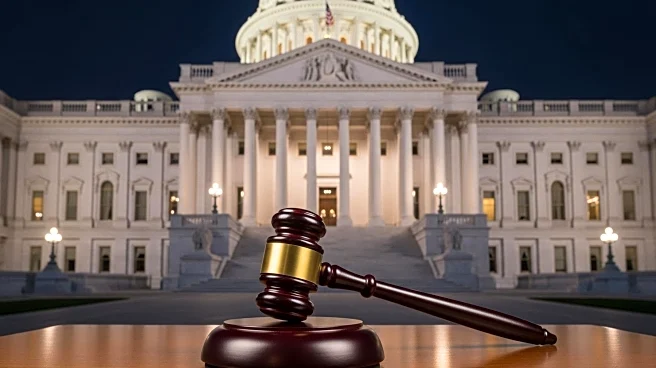What's Happening?
Republican Representative Michael McCaul of Texas has announced that he will not seek re-election after serving over two decades in Congress. McCaul, who was first elected to the U.S. House in 2004, has been a prominent figure in national security and foreign policy, serving as the chair of the Foreign Affairs Committee until January 2025. He expressed his intention to pursue new opportunities in the national security and foreign policy sectors after completing his current term. McCaul has been a vocal critic of the Biden administration's handling of the U.S. withdrawal from Afghanistan and has supported Ukraine in its conflict with Russia. He recently backed President Trump's ultimatum to NATO countries regarding sanctions on Russia, emphasizing the need for a unified stance against Moscow.
Why It's Important?
McCaul's decision to retire marks a significant shift in the congressional landscape, particularly in the realm of foreign affairs and national security. His departure could lead to changes in the leadership dynamics within the Republican Party and the Foreign Affairs Committee. McCaul's support for Ukraine and his stance on Russia have been influential, and his absence may impact the U.S. approach to these international issues. Additionally, his retirement opens up a congressional seat in Texas, which could influence the balance of power in the House, especially as the GOP seeks to maintain or expand its majority.
What's Next?
With McCaul's announcement, attention will turn to potential candidates who may run for his seat in the upcoming election. The Republican Party will need to identify a successor who can continue McCaul's legacy in foreign policy and national security. Additionally, McCaul's future endeavors in the national security and foreign policy sectors could continue to shape U.S. policy from outside Congress. The GOP will also need to address the leadership vacuum in the Foreign Affairs Committee, which could lead to shifts in policy priorities and strategies.









